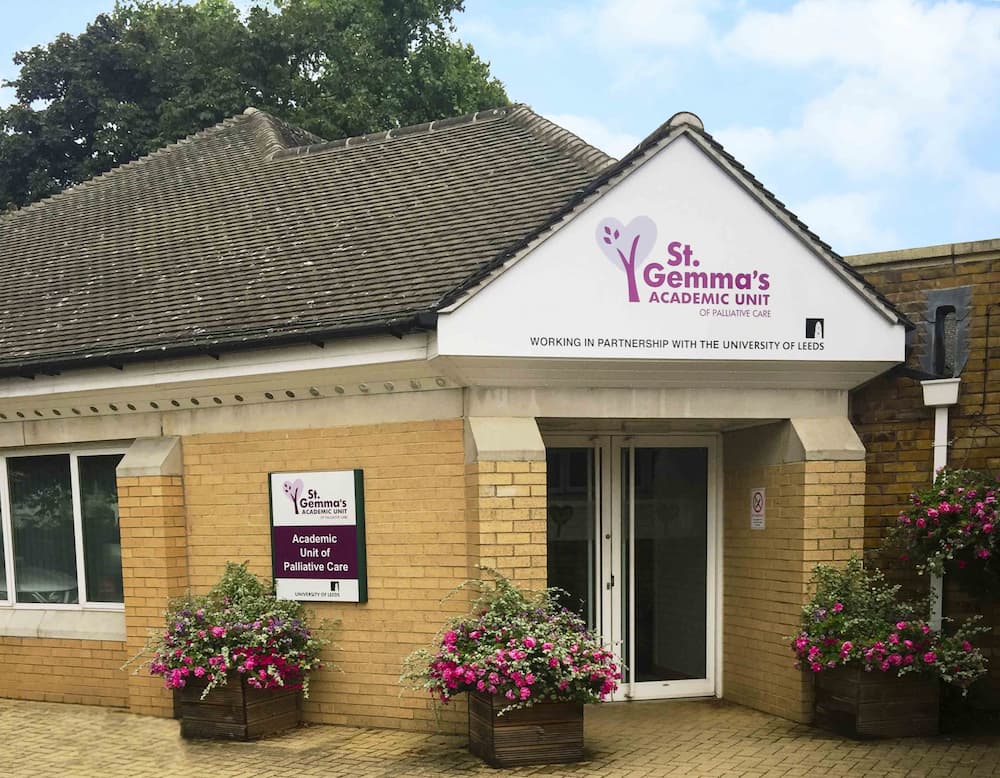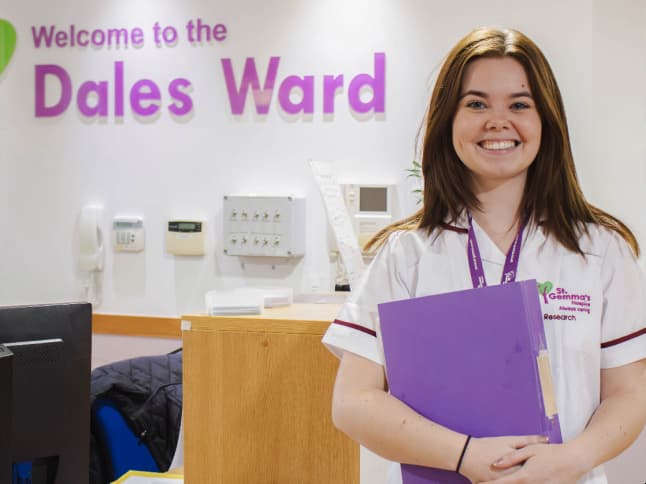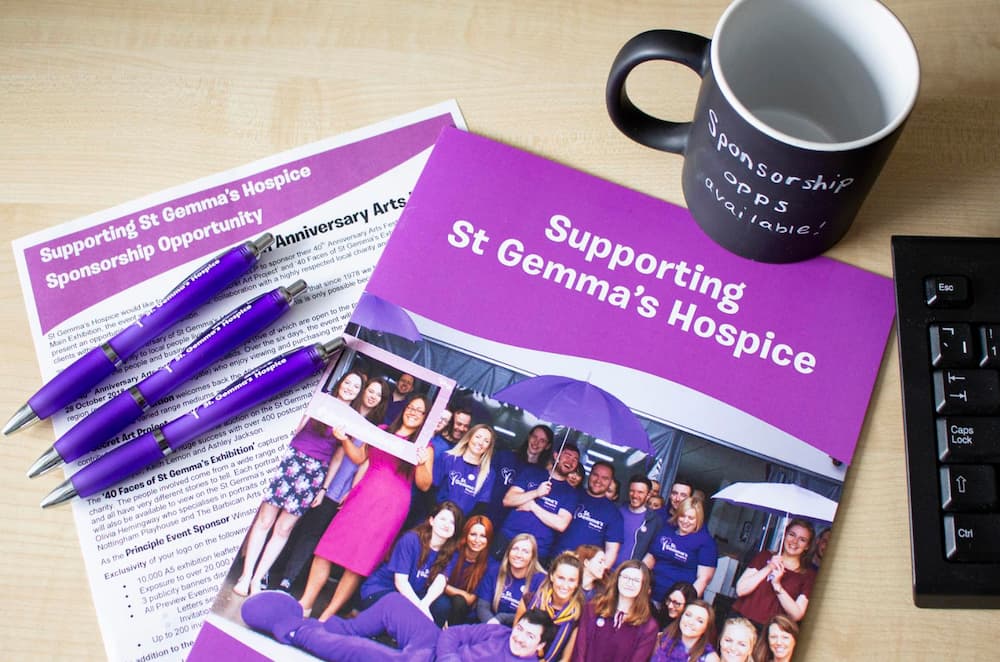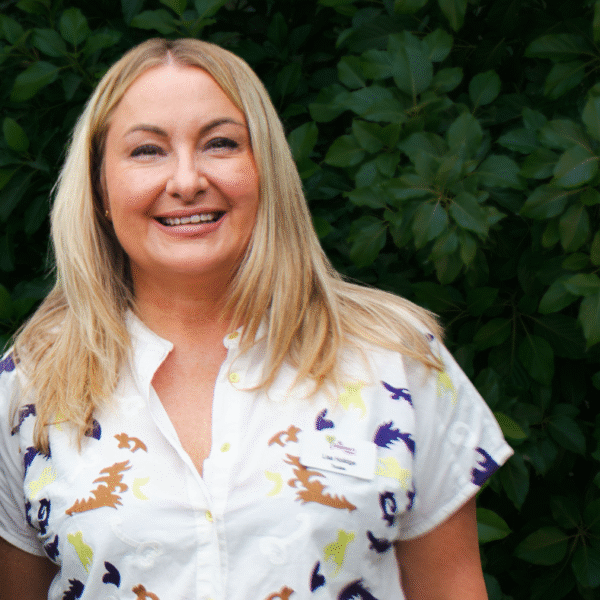My biggest surprise continues to be the depth of holistic care offered by St Gemma’s. It’s not just about the patient and symptoms but their lives, their families and how all these details are considered by the teams.
Lisa Hollidge became Chair of Trustees at St Gemma’s in July 2025, after serving as a trustee for two years. As part of Trustees’ Week, we caught up with Lisa to hear what inspired her to join St Gemma’s, what she’s learned along the way, and what excites her about the future of the Hospice.
• What drew you to become a trustee, and now Chair?
When I decided I wanted to become a trustee I knew it had to be for a charitable organisation and was keen to join an organisation that directly benefits the local community.
When I saw the St Gemma’s opportunity, I knew this was the one for me. Not only is this a local charity, but the purpose of St Gemma’s is also very close to my heart. I have first-hand experience of the difference that compassion, excellent care and dignity can have at the end of life.
For me to be able to use my skills and experiences to help support the outstanding work they do isn’t a job, it’s a privilege. I joined as a member of the Finance and Investment committee, working alongside my fellow trustees to ensure we are delivering our objectives to support the long-term financial health of the Hospice.
St Gemma’s is in a period of exciting change, fuelled by the passion to offer the very best care to more people for decades to come. When our Chair took the difficult decision to step down earlier this year, I wanted to support the new Chief Executive in realising strategic goals, playing my part to continue the leading care St Gemma’s is renowned for.
• Any surprises or lessons learned so far?
My biggest surprise continues to be the depth of holistic care offered by St Gemma’s. It’s not just about the patient and symptoms but their lives, their families and how all these details are considered by the teams. This can mean treatment in the Hospice itself or out in the community, so can be a real juggling act.
The Hospice is only partially funded by the NHS so it relies heavily on donations and fundraising to maintain this quality of care alongside the generosity of hundreds of volunteers. It really is a special community that is powered by kindness. St Gemma’s is a joyful environment which may sound strange given it’s palliative care; there is an overwhelming sense of serenity from the provision of the best end-of-life experience for those who need it.
My first lesson from the early months of being a trustee was to create enough time to read the often lengthy board papers and digest them, as I’m not from a healthcare background there were lots of new processes and acronyms to understand. You’re not expected to be an expert, however taking the time to understand the landscape is important
The next lessons was to spend a ‘day in the life’ of our In-Patient Unit and our Community Nurses to see the reality of how they operate and represent those findings to the Board; this really brings a greater perspective to some of the decisions and choices we face.
• What do you see as the most important part of a trustee’s role?
The most important part of the role is to ensure we are carrying out our purpose; the trustees act collectively and responsibly to govern St Gemma’s in accordance with the law, regulation and our governing document. Trustees must make balanced, informed decisions that advance the purpose of the Hospice for the future. It’s not a passive role. We don’t get involved with the day-to-day running or operational aspects, those decisions are for the experts in the leadership team. It’s important to remember being a trustee is a legal responsibility!
• Can you share a moment when you felt proud to be part of the board?
Yes! At this month’s Board meeting when we reviewed the annual Trustee’s Report, which documents the progress of St Gemma’s over the past year; so many achievements including the fantastic performance of our retail business which continues to grow.
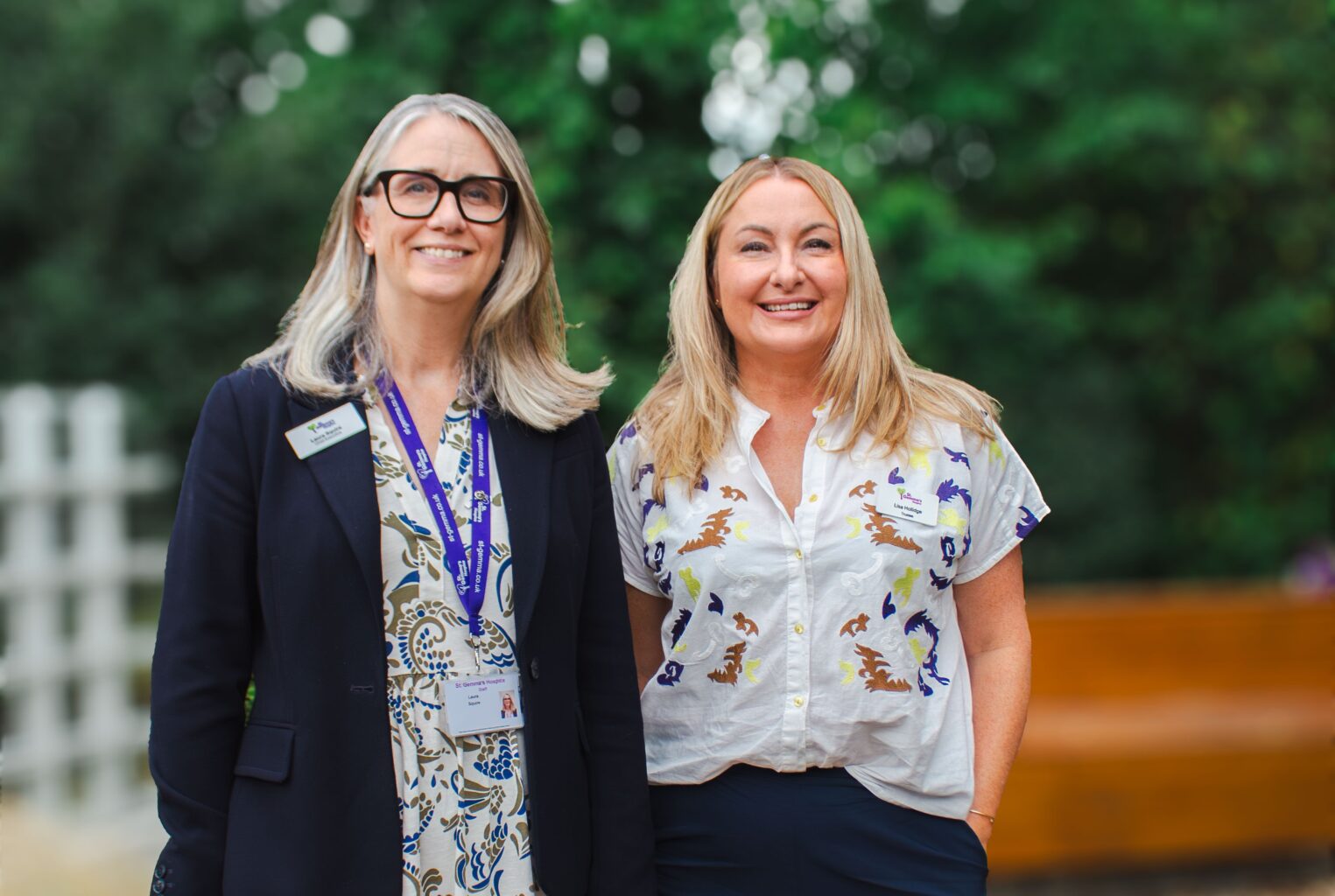
• Why do you think Trustees’ Week is important, and what message would you share with fellow trustees or anyone considering the role?
So many organisations are in desperate need of trustees to bring a ‘critical friend’ perspective to the operation. Trustee positions are almost always voluntary, giving your time for no financial reward. But after two years in the role I can say that the sense of fulfilment and pride far outweighs any time investment.
I know by offering a little bit of my time I can have a positive impact on a charity that fully supports my community. My career in the corporate world afforded me the opportunity to add value elsewhere and this role means I can have an impact where it really matters.
• What excites you about the future of the Hospice and your role as Chair?
With such a strong new leadership team, I’m confident we are entering one of the most progressive eras in the history of the Hospice. With an increase in need for palliative care over the coming years and a growth in complex conditions, St Gemma’s is re-imagining how it satisfies those needs. The Hospice building itself may need to undergo major changes and at-home care will evolve. These changes will be significant and require all teams to work collaboratively, with very clear prioritisation. The trustees and chair will seek assurance from the leadership team to keep on track with these goals.
• Any goals or hopes you’d like to share?
St Gemma’s reputation as a leader in the field of palliative care is well known and its influence beyond the Leeds area is gaining momentum. Supporting better care for more people, more often is at the heart of this organisation. It is my hope that other hospices across Yorkshire, across the UK and even internationally can benefit from what world-class care really looks like so more people can experience peace at the end of life.

